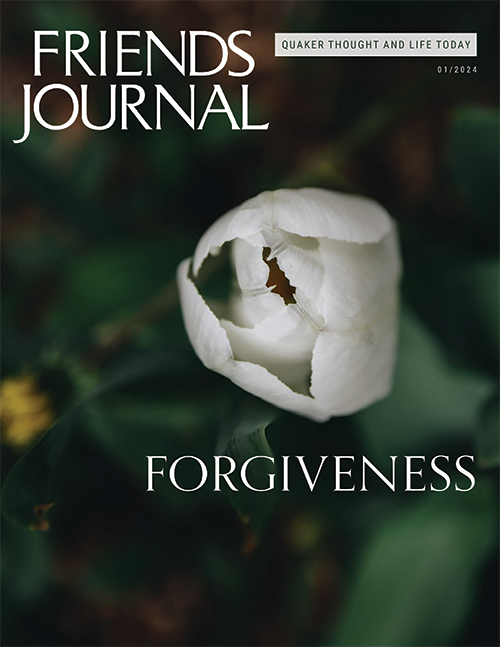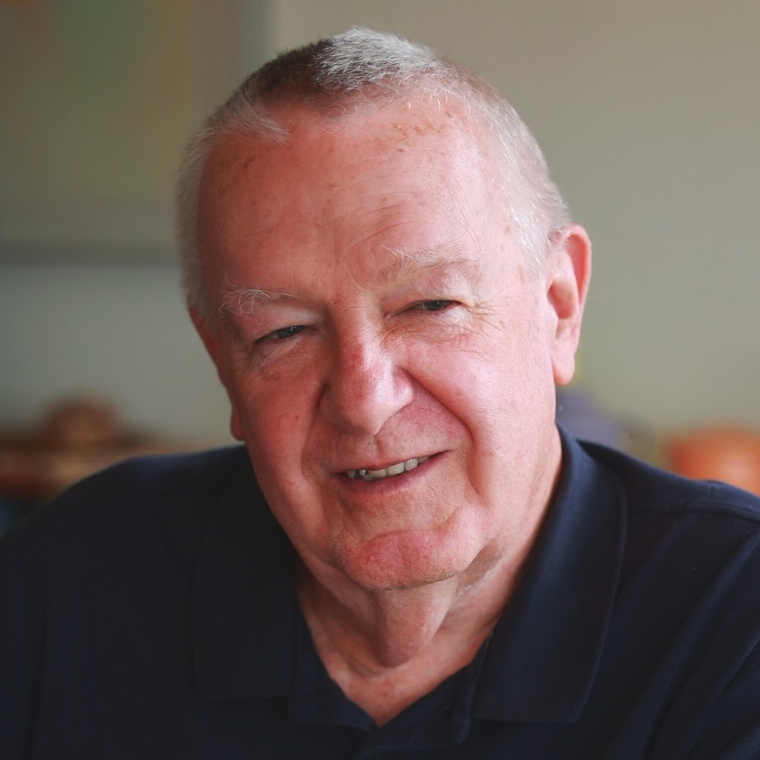Each morning before I begin my day’s activities, I say a prayer primarily of thanks for all the gifts and blessings I’ve received. However, it also includes the sentence, “Forgive me for all the things I have done in thought, word, and deed that have hurt or offended others; let them forgive me; let me forgive those who have hurt or offended me; let me forgive myself.” I’ve said this prayer, and consequently this sentence, so often and for such a long time that I now say it by rote without giving much thought to what the words mean for my daily spiritual life. So when my computer calendar informed me that the coming Monday (September 25, 2023) was Yom Kippur, the day that Jewish people are expected to pray to God for forgiveness of their sins, I decided it would be good for me to spend the day thinking about forgiveness, which I did with surprising and unexpected results.
Whenever I begin to think about a spiritual issue, I first turn to the gospels to see what Jesus of Nazareth had to say. My sentence includes four aspects of forgiveness, and so it was advice for each that I went seeking. I was surprised to find that the words forgive and forgiveness do not occur often and that the sayings or stories that were most helpful to me didn’t include those words at all.
Seeking God’s Forgiveness
My prayer is addressed to God, so the opening phrase—“forgive me for all that I have done”—is a request for God’s forgiveness. Although this seemed like an appropriate request (perhaps influenced by my Catholic upbringing and years of going to confession to ask forgiveness for my sins), I was surprised to realize that it was incompatible with my concept of God and with the gospel story that speaks most clearly to me about God’s forgiveness.
My concept of God is not an entity with human emotions or characteristics. It is more like an intelligent energy that is the source of and permeates all creation. Nonetheless, I believe that whatever it is for which we use the word “God,” it has a positive regard for all creation, including us human beings. In human language, this positive regard is called “unconditional love,” and I believe that is an accurate phrase: God’s love is unconditional, unchanging, and bestowed on all equally, no matter what we do.
The story in the gospel that speaks most clearly to me about forgiveness and that exemplifies the idea of God’s unconditional love is the one called “the Prodigal Son.” Like many others, I believe this parable is inappropriately named: it is really about a father and his relationship to his two sons. Some people view the story as an analogy for God’s relation to human beings: the father stands for God, the sons for us. Although I don’t read the story that way, I believe the father is a man living in the kingdom of God, and as such, he behaves in a way that manifests the presence of God in his life.
You will recall that the younger son asks for the share of his father’s estate that he will inherit. He receives it and then goes off and squanders it in what the gospel calls “wanton living.” (Another way of looking at it is that he goes off and has fun and enjoys himself.) When the money runs out, he decides to return home and rehearses a speech to give his father in which he asks for forgiveness. But even before he can get the words out, his father welcomes him with open arms, gives him a ring and a robe, and organizes a party. The father’s love for his son is unchanged; it is the same love that led him to give the resources. He placed no conditions on the gift of those resources; consequently, what his son did while he was away is of no concern to him. He does not judge his son’s behavior; he loves him regardless of what he has done, which is to say he loves him unconditionally.
The same is true for God. The gift of life comes with no conditions attached. Nor does God judge our deeds as “good” or “bad.” In God’s eyes, nothing is good or bad; it is, as Shakespeare reminds us, our own thinking that makes it so. The only thing God or the father might say is, what did you learn from that experience?
So if God’s love for me is unconditional, unchanging, and non-judgmental, why am I asking God for forgiveness? Indeed, it almost seems inappropriate and even insulting to ask for God’s forgiveness, as if it might not be given unless I asked. My best guess at the moment is that I am doing this to remind myself that my behavior often falls short of the spiritually led person I want to be, and that acknowledgement helps me to see both the need and the way to change. While that may be useful, a more appropriate prayer would be one that gives thanks to God for unconditional love despite my frequent failures to live up to the standards of the person I want to be.
So if God’s love for me is unconditional, unchanging, and non-judgmental, why am I asking God for forgiveness?
Seeking Forgiveness for Hurting or Offending Others
The gospel gives quite clear advice when it comes to seeking forgiveness from those I’ve hurt or offended. In Matthew 5:23–24 (KJV) Jesus says, “Therefore if thou bring thy gift to the altar and there rememberest that thy brother has ought against thee; leave there thy gift before the altar and go thy way; first be reconciled to thy brother, and then come and offer thy gift.” This sentence contains three important ideas.
The first is the meaning of the word “brother,” which I understand to mean sister, too. Jesus defines this word elsewhere (Luke 8:21) when he says my brothers “are these which hear the word of God and do it.” A brother is someone with whom you share something important in common and frequently that means a common spiritual belief. So this saying indicates that those kinds of relationships are very important to maintain and have a higher priority than bringing a gift to the altar, which must have been a very important act for the Jewish people of the time.
The second thing the saying tells us is that if you know someone feels you have hurt or offended them, it is your responsibility to take the initiative to repair the damage done whether or not you feel you have done something wrong. So long as your brother feels hurt, your relationship is broken, and you must address it. The third thing the saying tells us is how to do that.
It is significant that the word used is “reconcile” and not the phrase “ask for forgiveness.” Reconcile means to restore harmony to a relationship. You do that by acknowledging what you did and apologizing for it. The focus of your action is on the feelings of the other party, relieving them of the burden of anger and resentment that they may be carrying, a burden that can affect physical as well as spiritual well-being. There is a tendency to want to add the phrase “please forgive me” or something similar. But I think that is inappropriate, and the reason that the saying uses the word “reconcile.”
In the TV mini-series The Tudors, Charles Brandon is King Henry VIII’s best friend. He travels to Scotland where he previously led a military campaign and meets the ghost of a man he killed. When he asks for forgiveness, the ghost says no; “You living are so selfish.” To ask for forgiveness is a selfish act; it is concerned with relieving your shame and guilt for what you have done, whereas the focus of an apology should be on relieving the feelings of hurt of the person injured. If forgiveness is offered, it must be the voluntary decision of the other, and if it is withheld until your future actions show changed behavior, that is reasonable and appropriate, too.
Certainly, relieving your guilt or shame is one of the benefits of reconciling with your brother. It may even be that guilt and shame rather than your brother’s anger are the impetus for your action. Nonetheless, this is secondary to the primary objective of relieving your brother or sister of the burden they may still carry.

Forgiving Those Who Have Hurt or Offended Me
The gospels have much to say about forgiving others. Perhaps the best known is in the Lord’s Prayer. When I was growing up in the Catholic Church, the phrase was “forgive us our trespasses as we forgive them that trespass against us.” Current translations say the word is “debts” not “trespasses,” and the phrase that follows is “as we have forgiven our debtors.” In many other places we are told that unless we forgive others, God will not forgive us (Mark 11:25–26, Matthew 6:14–15, Luke 6:37). This seems to be a misunderstanding of the nature of God, as I previously discussed, and a lack of understanding of God’s unconditional love. In addition, it too seems selfish; it is a kind of reciprocal forgiveness, a quid pro quo that has as its primary objective seeking forgiveness for myself and relief from my guilt and shame. Just as apologizing is intended to ease the burden of anger and resentment for someone else, so giving forgiveness should be for easing the burden of guilt and shame that another may feel as a result of their actions.
Most of the books or articles I’ve read about forgiving others emphasize the way in which such forgiveness releases our resentments and a constant inclination to relive the past. While this is an important benefit, it also seems selfish. Forgiveness for me is an act of compassion: compassion for another and for the feelings they may have about actions that they now regret. If, when apologizing for my actions, I hope for reconciliation, then when someone apologizes to me, I must be willing to be reconciled and help relieve the burdens they still carry.
Better but more difficult advice about forgiving others is given in Matthew 18:21–22, when Peter asks, “Lord, how oft shall my brother sin against me, and I forgive him? till seven times? Jesus saith unto him, I say not unto thee, Until seven times: but, Until seventy times seven.” By using the word “brother” the story is once again referring to someone with whom you have a relationship based on a common bond. A modern-day psychologist would say that to forgive someone who has hurt you seven times, much less 490 times, makes no sense; it would only encourage continued bad behavior, knowing there would be no consequences. But much of what Jesus says doesn’t make sense to people who are not living in the kingdom of God. Here he is making the same point as before: such relationships are of great importance, and you must do more than might reasonably be expected to maintain them.
When I think of someone who has hurt me and who I need to forgive, the first person who comes to mind is my father. He did not do me any physical harm or harshly criticize me; the harm he caused was purely psychological. He was an emotionally distant man and never expressed his feelings in words or obvious actions. He seemed indifferent to me, which I took as a lack of love. As a result, I developed a strong resentment toward him that was an expression of my disappointment that I kept hidden within me. The phrase I’ve used is that I “hardened my heart against him.” I said to myself, If you won’t love me, I won’t love you, and I thought that would be a form of punishment. Nelson Mandela referred to this type of resentment as taking poison with the belief that it will kill your enemy. The only one who gets hurt is yourself, and that was true for me. Once you harden your heart to someone, it becomes easy to harden your heart to others, and a hardened heart cannot express love or accept love from others or be aware of God’s love.
Unfortunately, I carried that same pattern into other relationships as an adult. On Yom Kippur, when I thought about all the people who had hurt me and all the grudges and resentments I still carried, I realized for the first time that none of them had intended to hurt me. It was my interpretation of their actions that caused the pain and suffering I experienced. It was merely my ego that was bruised, and no harm was actually intended or inflicted. It is true that in each situation, there was some small incident that was the basis for my response, but it was minor and not intended to hurt. While I may have needed to forgive my father and others for those incidents, I suddenly realized the person I really needed to forgive was myself for thinking unfairly of them and for the pain and suffering I caused for myself by the resentment I created by my mistaken interpretation.
I think that when we forgive others and ourselves, we come as close as we can in this lifetime to manifesting God’s unconditional love. Forgiveness is the means; unconditional love is the goal.
Forgiving Myself
At the end of my day of reflection, I came to see—much to my surprise—that forgiving myself was at the heart of my ability to achieve peace with myself for my actions, and peace with others for theirs. The challenge was not to seek forgiveness externally but to be able to extend to myself the same unconditional love God extends to me and that I am encouraged to extend to others. Unconditional love means accepting myself as I am, forgiving myself for my mistakes, and trying to learn from them. The same is true for others. Reconciling with someone I’ve injured is not sufficient unless I can also forgive myself; reconciling with someone who has injured me is not sufficient unless I can forgive myself for my resentment, including the way I might have created that myself by attributing to them something that wasn’t there.
The actions for which I felt I needed to seek forgiveness or the hurts I felt I needed to forgive were all in the past. Consequently, it seemed that praying for forgiveness—from God, from others, or for myself—is not as appropriate as praying for help to extend unconditional love to everyone in my life, thereby making apology and forgiveness unnecessary. While I still feel it is good to ask for God’s forgiveness as a reminder that I am not perfect, it seems more important to thank God for unconditional love and ask for help in extending that to others. Consequently, I have revised my morning prayer to reflect this new perspective.
The title of this essay is altered from a quotation from Alexander Pope: “To err is human, to forgive divine.” It implies that only God can truly forgive, however, I think its meaning is that when we forgive others and ourselves, we come as close as we can in this lifetime to manifesting God’s unconditional love. Forgiveness is the means; unconditional love is the goal.







Interesting to learn forgiveness is not prioritized in the Bible, as unconditional forgiveness is crucial to deterring, slowing, stopping and reconciling wars.
While compassion can help, emotional love and forgiveness is far easier than choosing to do the right thing and act in love and forgiveness, especially if not feeling emotionally loving or forgiving. Yet, it’s the best way to achieve peace and justice.
Supposedly unconditional forgiveness is expected of humans by God, but not offered by God in the Old Testament, which if true fails to lead by example. In Old Testament Judaism, forgiveness is supposedly only offered after a sincere apology and request, which would not be unconditional and prevents peace. As those last two sentences do not align, any insights would be appreciated.
Thank you brother for carefully discerning, articulating, and sharing with us how best to understand and prioritize forgiveness as the means to the goal of unconditional love.